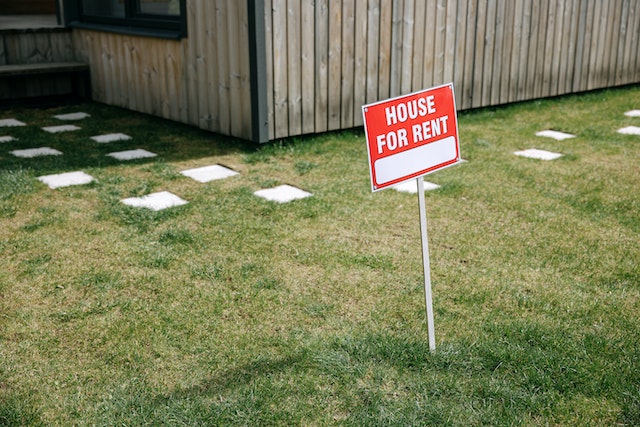Welcome to the world of property management, where the art of balancing responsibilities, maintaining properties, and keeping tenants happy all come together to create a rewarding experience. Whether you’re a first-time property manager or looking to sharpen your skills, this beginner’s guide will help you navigate the exciting world of rental operations successfully.
Understanding the Foundation
Before diving into the nitty-gritty of property management, it’s essential to lay the groundwork for your journey:
- Define Your Goals: Clarify your objectives and expectations as a property manager. Are you seeking financial stability, long-term investments, or a mix of both?
- Legal Know-How: Familiarize yourself with local and state regulations governing rental properties, including fair housing laws, eviction hardship extension texas procedures, and landlord-tenant rights.
- Financial Planning: Create a budget that covers operational costs, maintenance, and potential vacancies. Set aside a contingency fund for unforeseen expenses. You can use this property management cost calculator to help.
Finding the Perfect Tenants
Successful property management begins with selecting reliable and responsible tenants:
- Marketing Magic: Craft compelling property listings highlighting the unique features of each rental unit. Utilize captivating photos and emphasize the benefits of the neighborhood.
- Tenant Screening: Develop a robust screening process to assess potential tenants thoroughly. Check credit history, rental references, and conduct background checks to ensure trustworthy renters.
- The Personal Touch: Conduct face-to-face interviews to gauge compatibility and establish rapport with prospective tenants.
What makes a good tenant?
A good tenant is financially responsible, communicates well, respects the property, and follows rules. They have stable employment, maintain cleanliness, and are considerate of neighbors. A clean criminal record and pet responsibility are also important. A good tenant aims for a long-term relationship, allows property inspections, and ensures a positive rental experience for all parties.
Maintaining the Property
A well-maintained property not only attracts tenants but also ensures their satisfaction:
Regular Inspections: Schedule periodic inspections to identify maintenance needs and address potential issues before they escalate.
- Prompt Repairs: Respond swiftly to maintenance requests and address them with professionalism. A reliable maintenance team is invaluable.
- Upgrading and Updating: Keep your property up-to-date by periodically investing in upgrades and renovations that enhance its value.
The Art of Communication
Effective communication is the backbone of successful property management:
- Be Responsive: Respond promptly to tenant inquiries and concerns. Prompt communication fosters a sense of trust and reliability.
- Organized Record-Keeping: Maintain detailed records of all interactions, rental agreements, and repairs to avoid misunderstandings in the future.
- Empathy and Understanding: Cultivate a compassionate approach when dealing with tenant issues. Showing understanding builds rapport and encourages loyalty.
Why you need to give tenant’s notice and never show up unannounced
Giving tenants notice and never showing up unannounced is crucial for maintaining a harmonious and respectful landlord-tenant relationship. By providing advance notice before entering the rental unit, landlords demonstrate a fundamental respect for their tenants’ privacy and personal space. This courtesy is essential for ensuring tenants feel safe, secure, and comfortable in their homes.
In addition to promoting a positive living environment, providing notice is often a legal obligation that landlords must adhere to. Many jurisdictions have specific laws and regulations that govern the circumstances under which landlords can enter a rental property. Failing to give proper notice can lead to legal consequences, including fines or potential eviction.
Handling Rent and Finances
Maintaining a healthy financial aspect of property management is crucial:
- Clear Rent Policies: Establish transparent rent policies, including due dates, late fees, and payment methods. Communicate these policies to tenants during lease signings.
- Late Payment Strategies: Be firm but flexible when handling late rent payments. Consider offering incentives for on-time payments while enforcing late fees to discourage delays.
- Bookkeeping and Accounting: Keep meticulous financial records and separate personal and property finances. Utilize property management software to streamline financial tasks.
Managing Tenant Relations
A harmonious relationship with tenants fosters a positive rental experience:
- Active Listening: Actively listen to tenant feedback and concerns. Taking their input into account can lead to improvements and enhance tenant satisfaction.
- Community Building: Organize occasional community events to foster a sense of belonging among tenants. A friendly environment can encourage long-term tenancies.
- Conflict Resolution: Handle tenant disputes with tact and impartiality. Mediating conflicts promptly can prevent issues from escalating and maintain a peaceful living environment.
Conclusion
As a beginner in the realm of property management, you now possess the foundational knowledge to embark on your journey confidently. Embrace the challenges, learn from experiences, and remember that successful rental operations require a balance of professionalism, empathy, and a human touch. By focusing on the well-being of your tenants and maintaining your properties diligently, you are well on your way to becoming a seasoned property manager.
Related Posts












